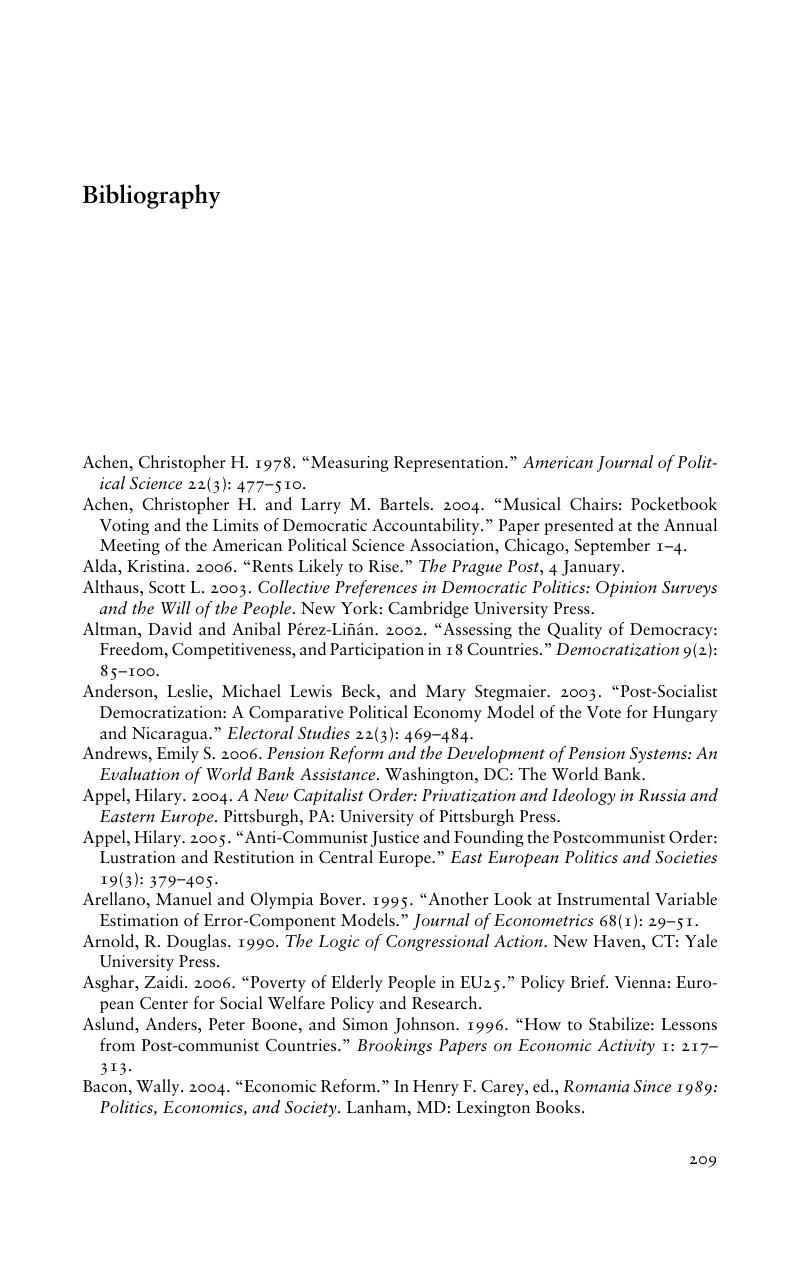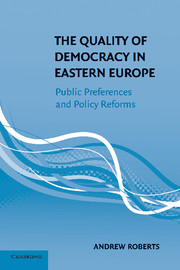Bibliography
Published online by Cambridge University Press: 06 July 2010
Summary

- Type
- Chapter
- Information
- The Quality of Democracy in Eastern EuropePublic Preferences and Policy Reforms, pp. 209 - 232Publisher: Cambridge University PressPrint publication year: 2009
References
- 1
- Cited by



